NO ONE SITS ON THE SIDELINES
By Ann Marie Scheidler
photography courtesy of Scott Paulus and Sarah Boeke
Wheelchair Racer Will Sawyer
By Ann Marie Scheidler
photography courtesy of Scott Paulus and Sarah Boeke
Wheelchair Racer Will Sawyer
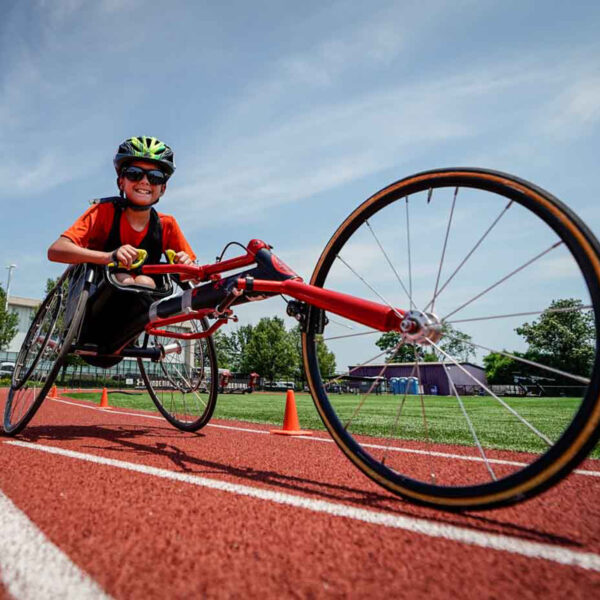
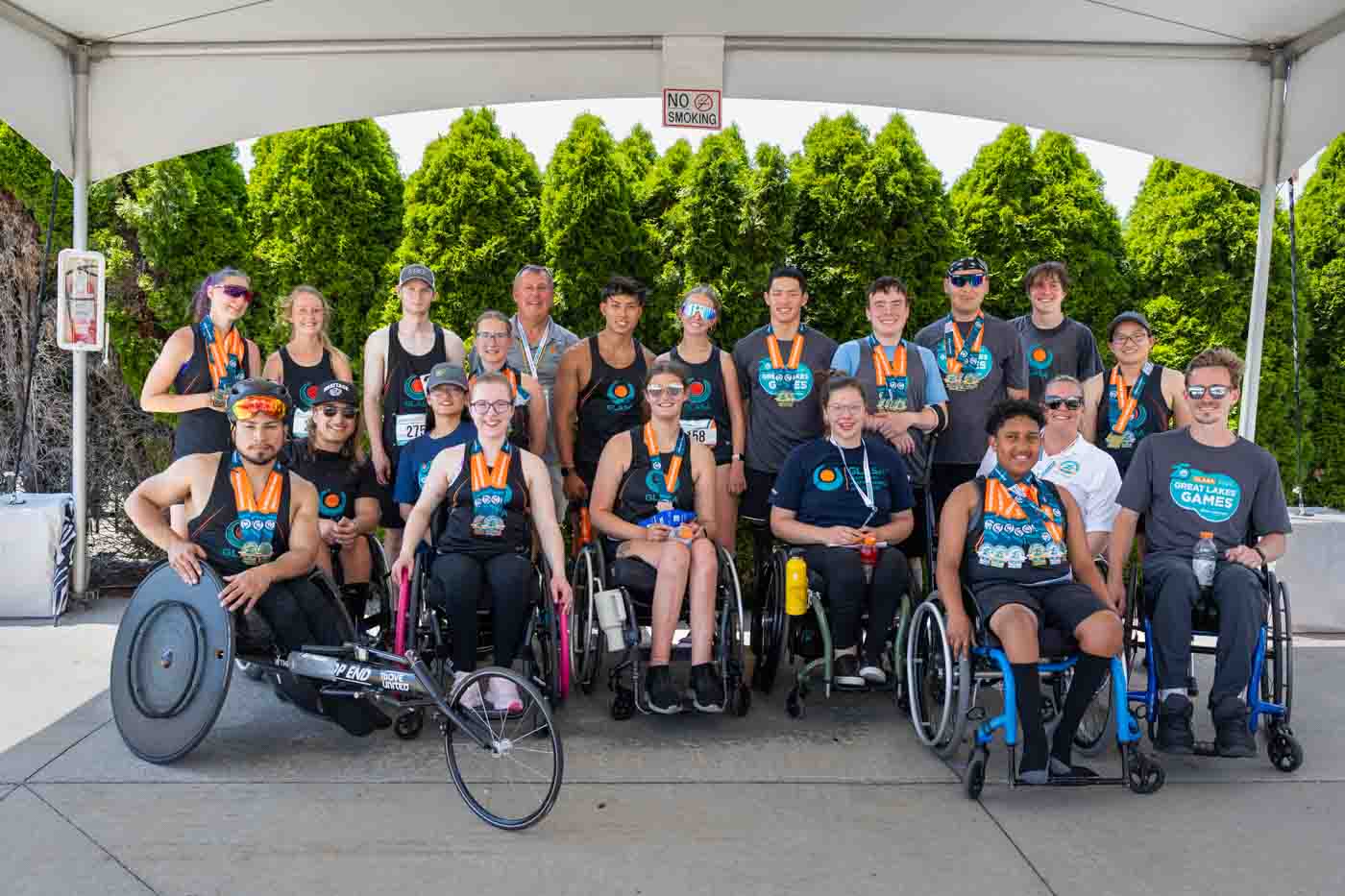
IT REALLY WASN’T UNTIL I went away and was swimming for my college team that I realized the impact that GLASA had on my life,” says Lake Forest High School graduate Julia Tanna. “Their motto is ‘Let no one sit on the sidelines.’ That doesn’t even begin to encapsulate all they are to their athletes.”
Great Lakes Adaptive Sports Association (GLASA) provides adaptive sports to youth, adults, and injured military who have a physical or visual disability from ages 3 to 75+. GLASA supports athletes with primary physical or visual disabilities, such as amputation, cerebral palsy, dwarfism, muscular dystrophy, spinal cord injuries, spina bifida, stroke, visual impairment, and more.
Founded by Cindy Housner with just three athletes nearly 30 years ago, GLASA now boasts of more than 1,000 athletes competing in their programs. Part of GLASA’s mission is that no one is ever turned away due to an inability to pay, and no prior experience is needed to join GLASA’s recreational or competitive programs. With 20+ adaptive sports offered—with even some virtual options available—there is something for everyone.
“I’m not exactly sure why I gravitated towards adaptive sports early in my career,” says Housner, who recently stepped down as executive director of the organization to devote her full attention to GLASA’s programming. Beth DeRosier is GLASA’s new executive director. “I saw what it meant to someone with a disability to be able to compete in a sport, to play on a team. That type of experience and all that comes with it can change a life.”
Tanna appreciated these advantages firsthand.
“I loved that I had the opportunity to compete as a swimmer at the college level,” she says, after swimming for four years at Lake Forest High School under Coach Carolyn Grevers, “but I was the only one on my college team with a physical disability. That was hard because even though my coach and teammates meant well, they weren’t really sure how to handle me. With GLASA, they always knew the right thing to say or do. The coaches were incredible. I was competing with people like me. And today, even though I’m no longer participating in competitions, GLASA continues to be my greatest network for mentoring, advice, and any support I might need.”
In addition to offering programming and coaching, GLASA sources gear for athletes, too. When Tanna first participated in a GLASA favorite, the Twilight 5k, she didn’t have a handcycle she could race in.
“GLASA found me one,” she says. “I didn’t even know that was a possibility. It was amazing because it let me to race alongside my mom.”
From June 11 to 16, GLASA—in partnership with The Hartford—will bring hundreds of athletes together for its annual Great Lakes Games, a multi-day event that provides a continuum of competition for the developmental and elite Paralympic athletes alike. The competitions take place at both Lake Forest High School and Loyola Academy, and more than 300 volunteers are required to manage the event. Housner encourages fans from near and far to come to any or all of the events and cheer on the athletes.
“The Great Lakes Games are my favorite time of year,” Tanna says. “I like to volunteer at packet pickup because I see my friends, meet some of GLASA’s new athletes, and get to talk to some of the people who are competing in these games at the highest level. I always love to help with the swim events. It’s always so special for me to see the whole basement of my high school filled with GLASA’s athletes. I also love that the Games are an event that my whole family can be a part of in some way. My parents, brother, and sisters have always volunteered. They still do, even though I’m not competing anymore. Once you’re a part of the GLASA family, you are always part of the GLASA family.”
Housner believes so passionately in the self-esteem, character, and confidence that can come from participating in sports, that if she’s out and about and sees someone who might make for a GLASA athlete, she introduces herself and makes a pitch for GLASA.
“Even though we’re fortunate today to have many athletes find their way to us, I still meet people who haven’t heard of GLASA or our mission,” she says. “After all of these years, it still fills me up to share our story and let someone know what they can be a part of. Some of our athletes are hoping to compete at the Paralympics in Los Angeles in 2028. I always tell every athlete I meet, you just don’t know where those dreams can take you.”
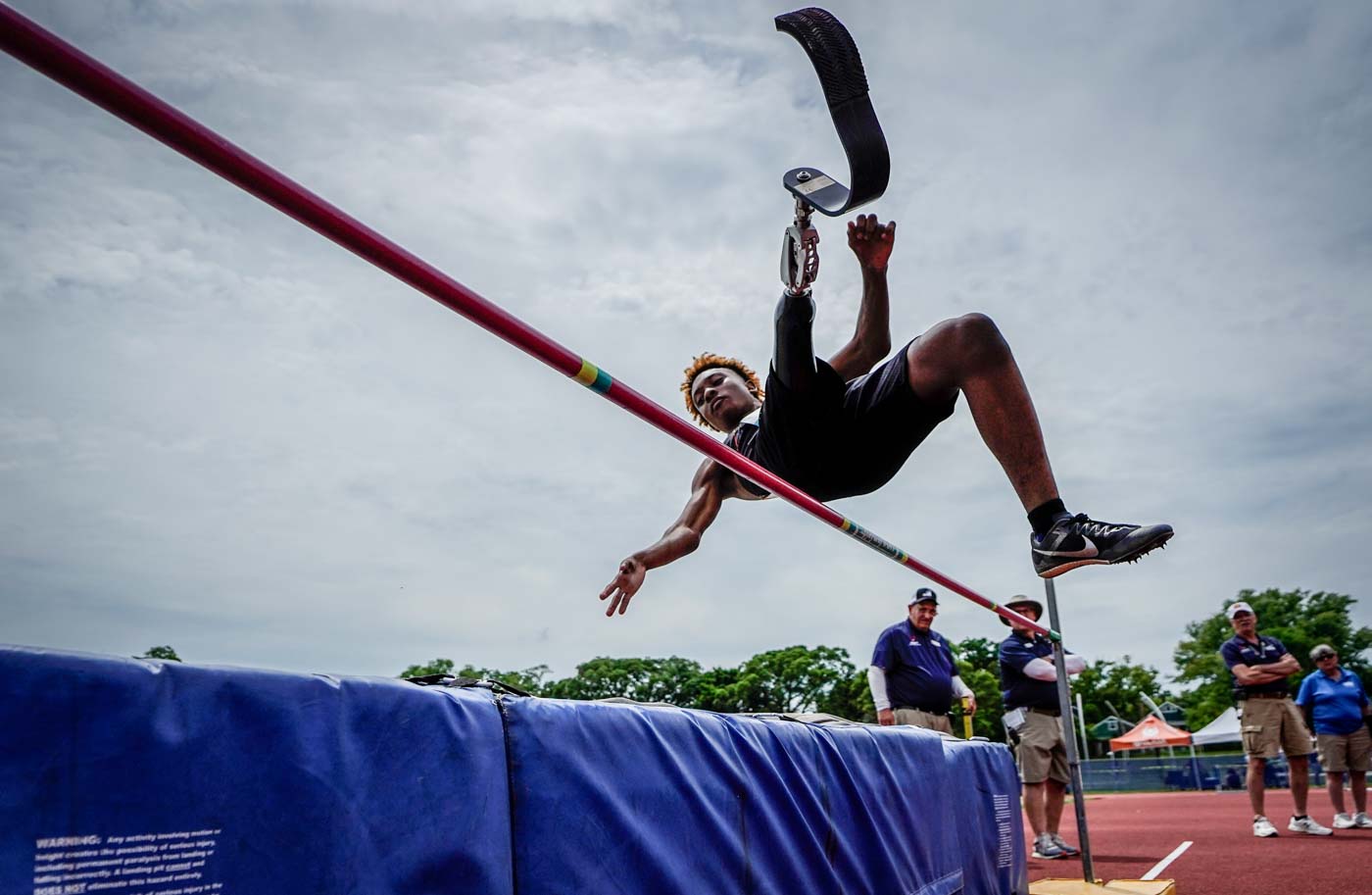
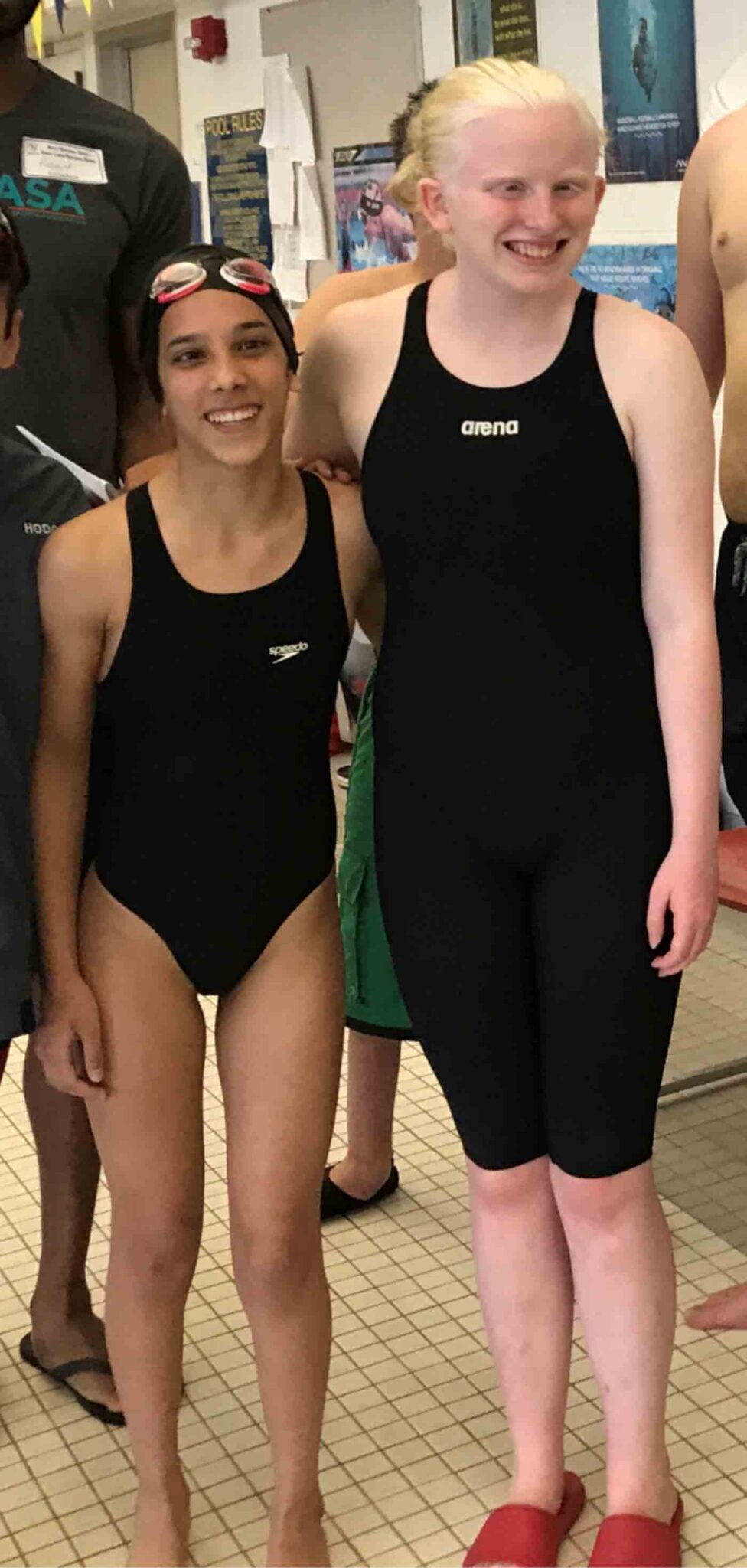
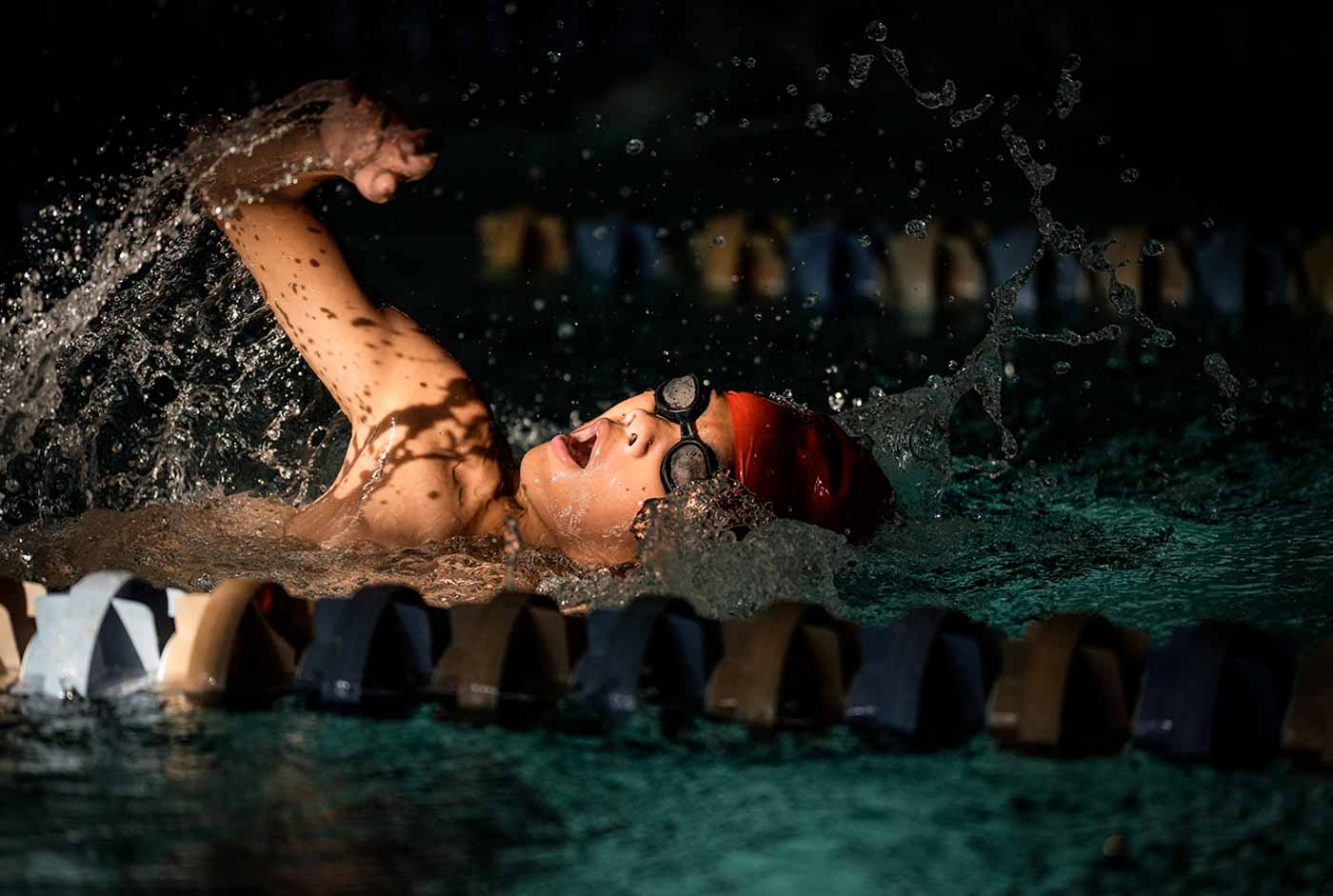
To learn more about GLASA or how you might become involved as a volunteer, visit glasa.org.
Sign Up for the JWC Media Email